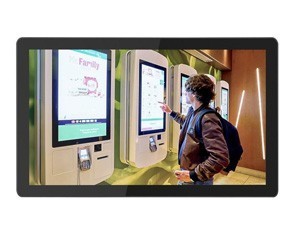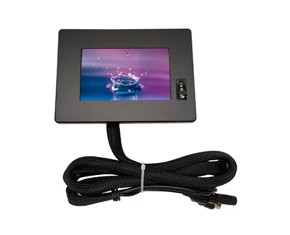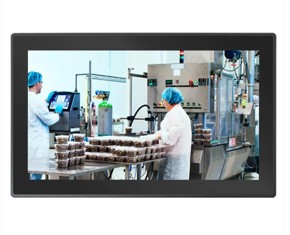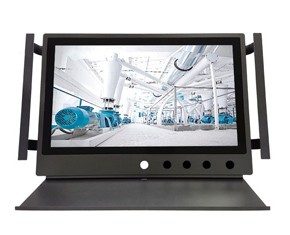Mar. 22, 2024
Industrial touch monitors have become indispensable tools in various sectors, from manufacturing plants to healthcare facilities. These ruggedized displays offer durability, reliability, and enhanced functionality suitable for demanding environments. However, selecting the appropriate industrial touch monitor requires careful consideration of several factors to ensure it meets the specific requirements of your application. In this guide, we'll explore key aspects to consider when choosing the right industrial touch monitor.
One of the foremost considerations is the operating environment in which the industrial touch monitor will be deployed. These monitors are designed to withstand harsh conditions such as extreme temperatures, humidity, dust, and vibrations. Ensure that the monitor you choose is rated for the specific environmental conditions of your facility to prevent premature failure and ensure uninterrupted operation.
Industrial touch monitors utilize various touch technologies, including resistive, capacitive, infrared, and surface acoustic wave (SAW). Each technology offers distinct advantages and is suitable for different applications. Resistive touch screens are cost-effective and work well with gloves or styluses, making them ideal for industrial settings. Capacitive touch screens offer multi-touch capabilities and high clarity, making them suitable for interactive applications. Evaluate your requirements to determine the most suitable touch technology for your needs.
The size and resolution of the industrial touch monitor depend on the intended application and viewing distance. Consider the viewing distance and the amount of information that needs to be displayed on the screen. Larger monitors with higher resolutions are preferable for applications that require detailed graphics or multiple data points to be displayed simultaneously. However, for space-constrained environments, smaller monitors with lower resolutions may be more practical.
Ensure that the industrial touch monitor offers a range of connectivity options to integrate seamlessly with your existing systems and devices. Common connectivity options include VGA, HDMI, DisplayPort, USB, and serial ports. Additionally, consider whether the monitor supports legacy interfaces or proprietary protocols required by your equipment.
Industrial environments demand displays that can withstand rigorous use without compromising performance. Look for features such as ruggedized enclosures, reinforced glass, and IP-rated ingress protection to ensure durability and reliability. Additionally, consider the manufacturer's reputation for quality and reliability, as well as the availability of warranty and support services.
Depending on your application requirements, you may need to customize the industrial touch monitor or integrate additional features such as barcode scanners, RFID readers, or proximity sensors. Choose a manufacturer that offers customization options and has experience integrating peripherals and accessories to meet your specific needs.
While upfront cost is an important consideration, it's essential to evaluate the total cost of ownership (TCO) over the lifespan of the industrial touch monitor. Factors such as energy efficiency, maintenance requirements, and the availability of spare parts can impact long-term costs. Consider the TCO alongside the features and capabilities offered by the monitor to make an informed decision.
Q: What are the advantages of industrial touch monitors over consumer-grade displays?
A: Industrial touch monitors are specifically designed to withstand harsh environmental conditions and rigorous use in industrial settings. They offer enhanced durability, reliability, and functionality compared to consumer-grade displays.
Q: How do I determine the appropriate size and resolution for my industrial touch monitor?
A: Consider factors such as the viewing distance, the amount of information to be displayed, and the available space in your facility. Larger monitors with higher resolutions are preferable for detailed graphics or multiple data points, while smaller monitors may be more practical for space-constrained environments.
Q: What touch technology is best suited for industrial applications?
A: The choice of touch technology depends on your specific application requirements. Resistive touch screens are cost-effective and work well with gloves or styluses, while capacitive touch screens offer multi-touch capabilities and high clarity. Evaluate your needs to determine the most suitable option.
Q: How important is connectivity when choosing an industrial touch monitor?
A: Connectivity is crucial for seamless integration with existing systems and devices in your facility. Ensure that the monitor offers a range of connectivity options, including VGA, HDMI, DisplayPort, USB, and serial ports, to meet your requirements.
Q: What factors should I consider besides upfront cost when evaluating industrial touch monitors?
A: In addition to upfront cost, consider factors such as durability, reliability, customization options, and total cost of ownership (TCO) over the lifespan of the monitor. Evaluate the features and capabilities offered by each monitor to make an informed decision.
By carefully considering these factors and addressing common questions, you can confidently choose the right industrial touch monitor for your specific application, ensuring optimal performance and reliability in demanding environments.



Capacitive Vs Resistive Touch Screens: When to Choose?
Mar. 14, 2025

How to Choose Capacitive Touch Monitors
Dec. 27, 2024